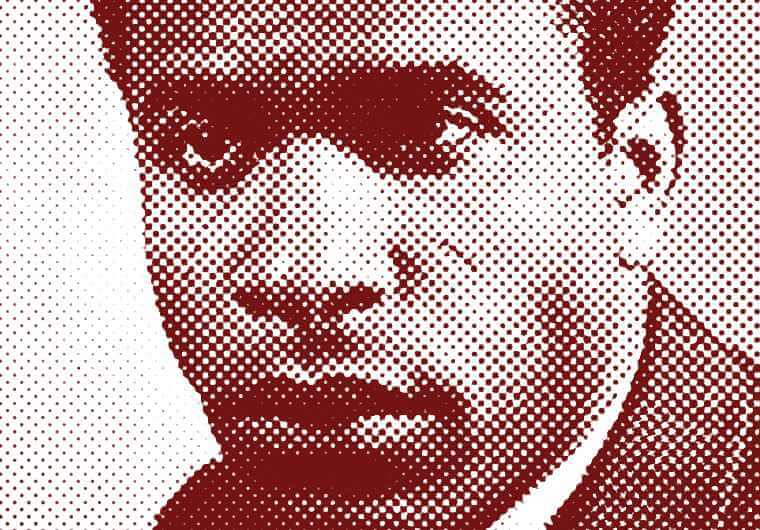An litir dhearg
Stay up to date! Receive a newsletter from us to keep up with the campaigns.

The Algerian revolutionary Frantz Fanon is 60 years gone this month. Fanon is best known as a psychologist, a revolutionary theoretician and philosopher, who played a vital role in the revolutionary movement in Algeria in the 50s and early 60s.
Fanon died as a reuslt of leukaemia at the age of 36, and his ideas left a crucial mark on cultural and political movements across the world since then.
His most cited book, The Wretched of the Earth, is particularly well-known for its articulate insight into the merciless influence of colonialism and racism faced by its victims. More importantly, however, he laid a powerful and radical vision about the struggle of the need for decolonisation in order to tackle dehumanisation which stems from the process of colonisation.
‘Decolonisation never takes place unnoticed, for it influences individuals and modifies them fundamentally. It transforms spectators crushed with their inessentiality in privileged actors with the grandiose glare of history’s floodlights upon them’.
Frantz Fanon, The Wretched of the Earth
According to Fanon, there are 3 particular steps which one can go through during the process of decolonisation. Firstly, the aboriginals must recognise that they have been totally assimilated by the occupational powers; in the second step, the native intellectuals must revert to their own history and to the importance of native culture; and in the final step, a huge effort is made to reawaken the aboriginals, and to inspire them through a cultural and literary revival. If the cultural revival is successful in the context of colonialism, according to Fanon, a more widespread struggle towards liberation and national independence is inspired.
‘To fight for national culture’ according to Fanon, ‘means first and foremost to fight for the liberation of the nation, that material keystone which makes the building of a culture possible’.
I think that the above definition of decolonisation could be used to describe the Irish language revival in Ireland, from the foundation of Conradh na Gaeilge to the Easter Rising in 1916. As well as that, with with numerous examples from activists who took part in the contemporary revival in the years which followed the 1981 Hunger Strike, I alluded to the ideological mark which Fanon’s thoughts have left, even today.
In August 2017, Féile an Phobail and Glór na Móna invited Nigel Gibson, an expert on Fanon, who gave an insightful talk on South Africa and he used Fanon’s stark warning of the dangers of neocolonialism. Fanon wrote that there was a huge danger that a class of ‘bourgeois nationalists’ would come to light following the achievement of ‘formal independence’, who would employ a system as unfair as the colonial age. He showed that the story is the same in New South Africa today, where people got the opportunity to vote, but not for the economic equality that was promised to them.
A new upper class developed in the new age, and the hardship and level of poverty faced by the underclass increased in the same period. Fanon demonstrated that there was a difference between ‘independence’ and ‘liberation’ and that we must be aware of this.
A decolonial vision for liberation is as just as appropriate today as it was then. That same decolonial philosophy is palpable in the contemporary Irish language revival in the north and in the exhilarating, transformational campaign organised by an Dream Dearg in recent years. I’ll explore this further in my next blog post.
Stay up to date! Receive a newsletter from us to keep up with the campaigns.